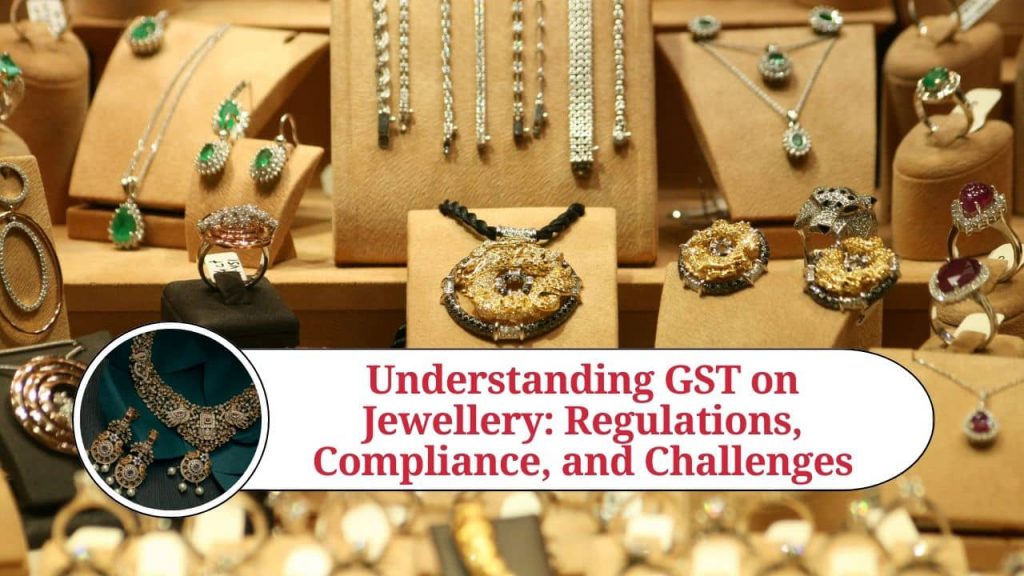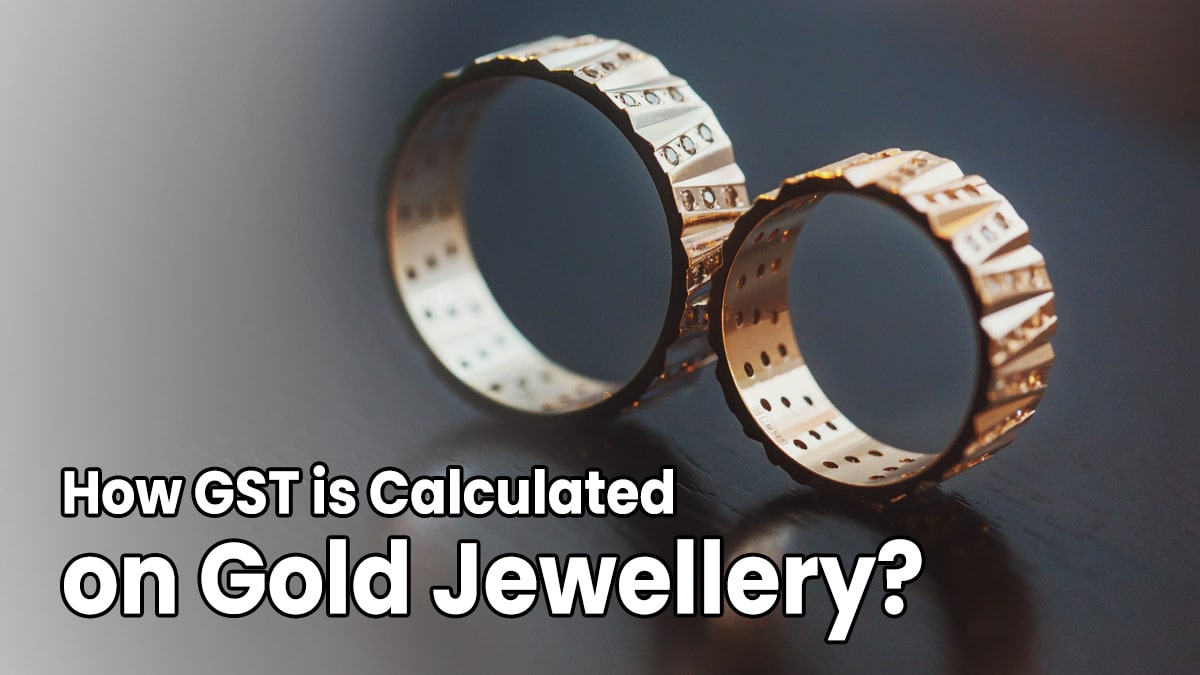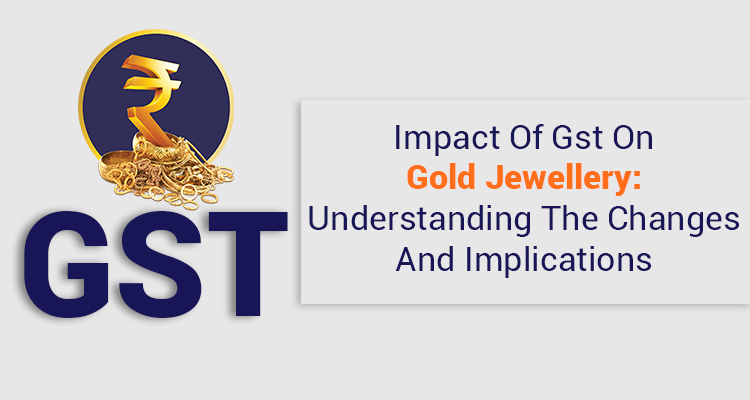Demystifying GST on Jewellery Job Work: A Comprehensive Guide
Related Articles: Demystifying GST on Jewellery Job Work: A Comprehensive Guide
Introduction
With great pleasure, we will explore the intriguing topic related to Demystifying GST on Jewellery Job Work: A Comprehensive Guide. Let’s weave interesting information and offer fresh perspectives to the readers.
Table of Content
Demystifying GST on Jewellery Job Work: A Comprehensive Guide

The Indian jewellery industry, renowned for its exquisite craftsmanship and intricate designs, operates within a complex web of regulations. One such crucial aspect is the Goods and Services Tax (GST), which impacts the intricate process of jewellery job work. This guide aims to provide a comprehensive understanding of GST’s application to jewellery job work, shedding light on its implications and navigating the intricacies of this specialized area.
Understanding Jewellery Job Work and its GST Implications
Jewellery job work encompasses the various stages involved in transforming raw materials into finished jewellery pieces. This process often involves multiple entities, each specializing in a specific aspect of the production chain. For instance, a goldsmith might undertake the melting and casting of gold, while a polisher refines the surface of the jewellery, and a designer adds intricate details.
The complexities of GST arise from the fact that each stage of job work involves the transfer of goods (the jewellery being worked upon) and the provision of services (the craftsmanship). This intermingling of goods and services necessitates a careful understanding of the GST rates and applicability to ensure compliance and avoid potential penalties.
Key Aspects of GST on Jewellery Job Work
- Classification of Jewellery: Under GST, jewellery is classified as "Precious and Semi-Precious Stones and Metals" and falls under HSN Code 7113. This classification dictates the applicable GST rate, which is currently 3% for most jewellery items.
- Job Work Charges: The charges levied by the job worker for their services are subject to GST. The rate of GST on job work charges depends on the nature of the service provided. In most cases, the applicable GST rate is 18%.
- Input Tax Credit (ITC): Job workers are eligible to claim ITC on the GST paid on inputs used in the job work process. This includes the GST paid on raw materials, consumables, and other services.
- Reverse Charge Mechanism (RCM): In certain situations, the recipient of the job work (the principal) is responsible for paying GST on the job work charges. This mechanism applies when the principal is registered under GST and the job worker is unregistered or when the job worker is located outside India.
Navigating the GST Maze: A Step-by-Step Guide
1. Identification of the Job Work Process: The first step involves identifying the specific stages of job work involved in the production of the jewellery. This includes understanding the nature of the services provided by each job worker and the goods being transferred.
2. Determining the Applicable GST Rates: Once the job work process is identified, the next step involves determining the applicable GST rates for each stage. This includes the GST rate on the raw materials, the GST rate on the job work charges, and the GST rate on the finished jewellery.
3. Invoicing and Documentation: Accurate invoicing and documentation are crucial for maintaining GST compliance. The job worker should issue invoices detailing the job work charges, the applicable GST rate, and the GST amount payable. The principal should also maintain records of the job work received and the GST paid on it.
4. Claiming Input Tax Credit (ITC): Job workers are eligible to claim ITC on the GST paid on inputs used in the job work process. This ITC can be utilized to offset the GST payable on the job work charges.
5. Understanding Reverse Charge Mechanism (RCM): In specific scenarios, the principal is responsible for paying GST on the job work charges under the RCM. This requires careful documentation and compliance with the relevant regulations.
Importance of GST Compliance in Jewellery Job Work
- Transparency and Accountability: GST promotes transparency and accountability in the jewellery industry by providing a standardized framework for tax collection and reporting.
- Streamlined Supply Chain: GST simplifies the complex supply chain by eliminating multiple taxes and streamlining the process of claiming ITC.
- Reduced Costs: By claiming ITC, job workers can reduce their overall tax burden and pass on the benefits to the principal.
- Harmonized Rates: GST ensures a harmonized tax structure across the country, eliminating the complexities of multiple state-level taxes.
FAQs on GST on Jewellery Job Work
Q1. What are the GST rates applicable to jewellery job work?
A1. The GST rate on jewellery is 3%, while the GST rate on job work charges is typically 18%. However, the specific rates may vary depending on the nature of the job work and the services provided.
Q2. Who is responsible for paying GST on job work charges?
A2. Generally, the job worker is responsible for paying GST on the job work charges. However, under the RCM, the principal may be responsible for paying GST if certain conditions are met.
Q3. Can job workers claim ITC on inputs used in the job work process?
A3. Yes, job workers can claim ITC on the GST paid on inputs used in the job work process. This includes the GST paid on raw materials, consumables, and other services.
Q4. What documents are required for maintaining GST compliance?
A4. Job workers and principals are required to maintain various documents, including invoices, bills of supply, and GST returns. These documents should accurately reflect the job work transactions and the applicable GST rates.
Q5. What are the penalties for non-compliance with GST regulations?
A5. Non-compliance with GST regulations can result in various penalties, including fines, imprisonment, and cancellation of registration.
Tips for Efficient GST Compliance in Jewellery Job Work
- Maintain Accurate Records: Keep detailed records of all job work transactions, including invoices, bills of supply, and GST returns.
- Understand the GST Rates: Familiarize yourself with the applicable GST rates for jewellery, job work charges, and inputs.
- Claim ITC Regularly: Claim ITC on the GST paid on inputs promptly to reduce your tax burden.
- Seek Professional Advice: Consult with a GST expert to ensure compliance with the complex regulations.
- Stay Updated: Keep abreast of any changes in GST regulations and their impact on jewellery job work.
Conclusion
Understanding the nuances of GST on jewellery job work is essential for ensuring compliance and navigating the complex regulations. By adhering to the guidelines outlined in this guide, job workers and principals can ensure smooth operations, minimize tax liabilities, and contribute to the growth and prosperity of the Indian jewellery industry.








Closure
Thus, we hope this article has provided valuable insights into Demystifying GST on Jewellery Job Work: A Comprehensive Guide. We appreciate your attention to our article. See you in our next article!